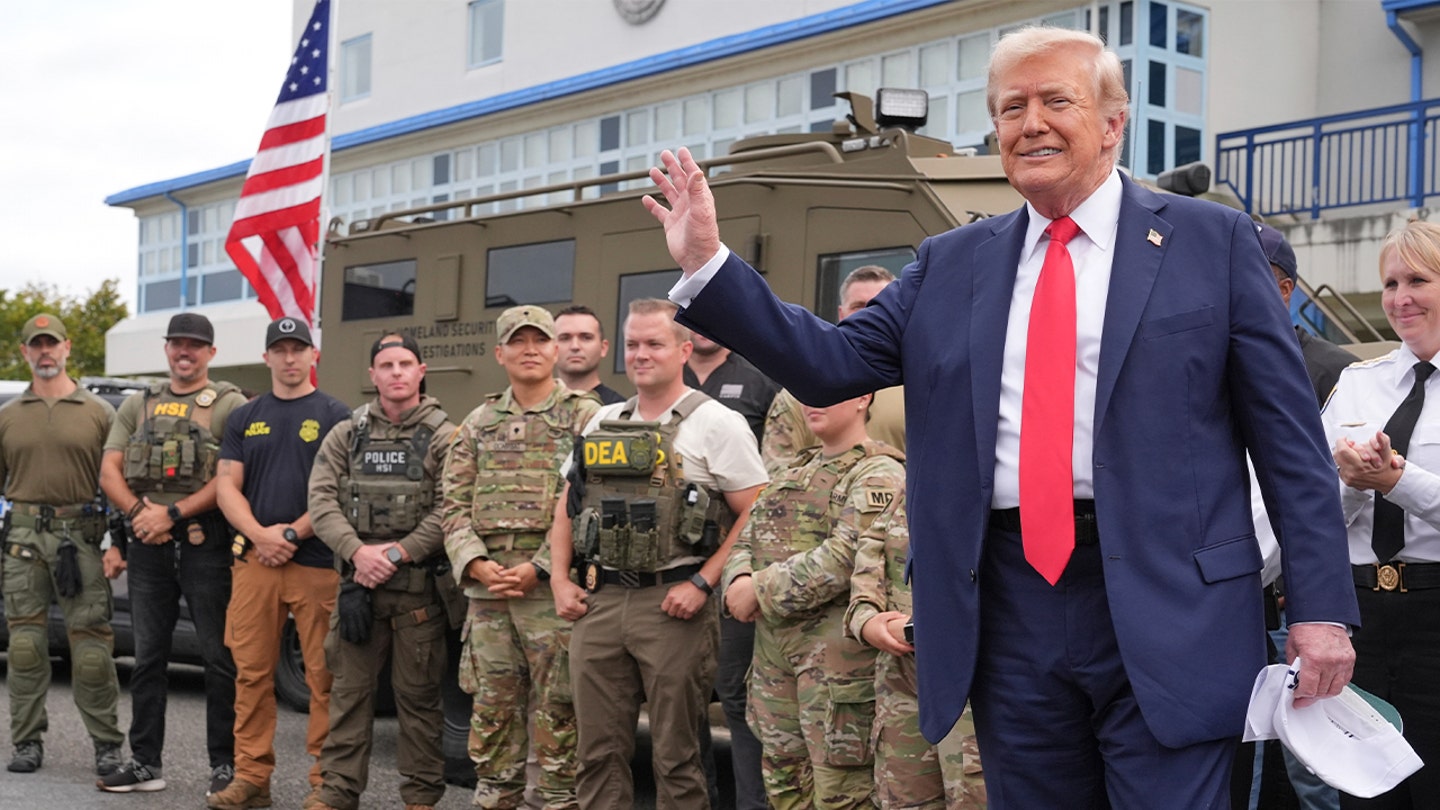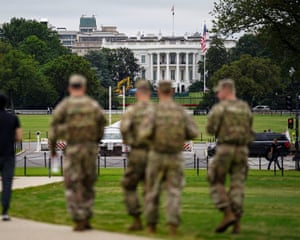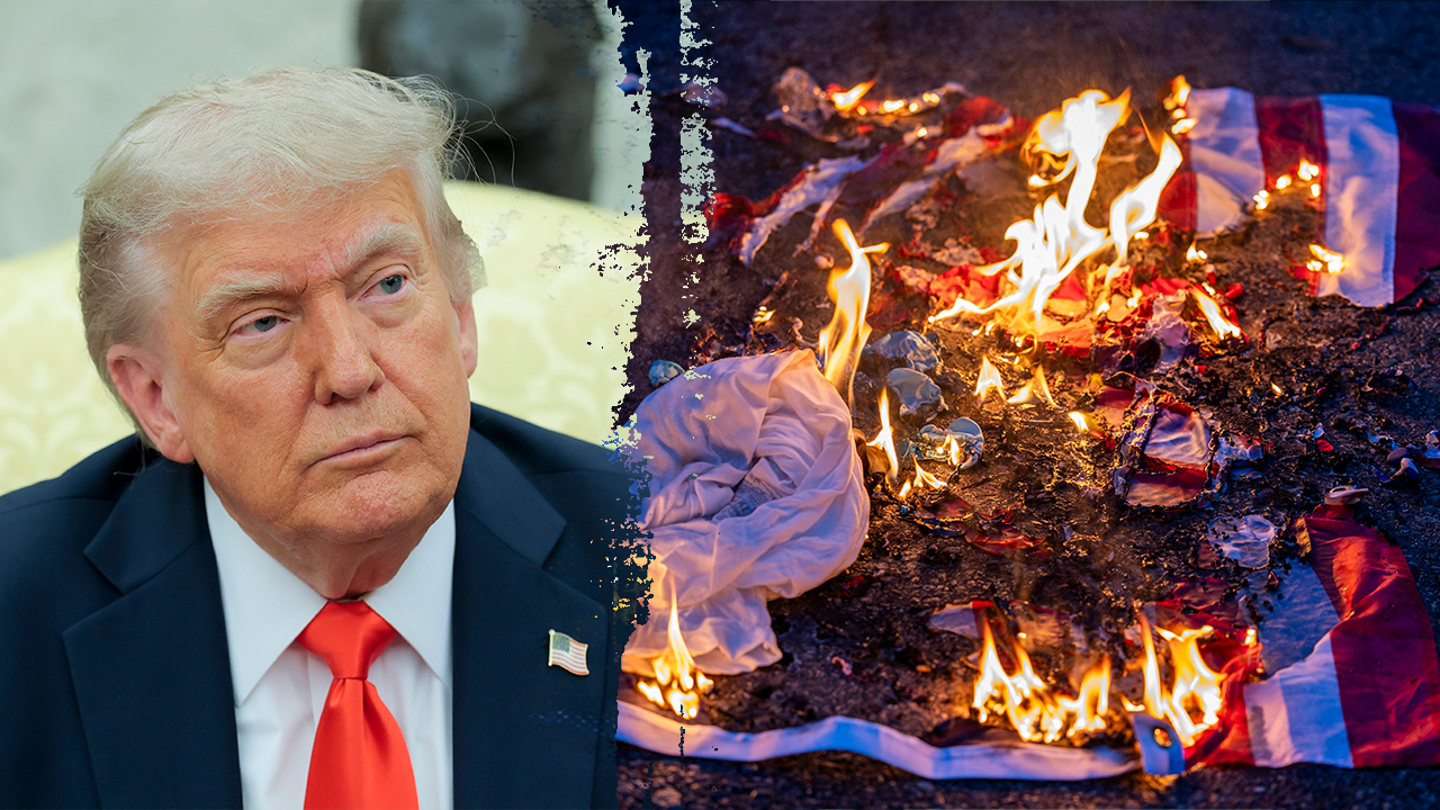
WNBA star Paige Bueckers calls for tight gun control laws after Minnesota Catholic church shooting
Entities mentioned:
- Paige Bueckers: Moral outrage, Justice, Righteousness
- Robert/Robin Westman: Revenge, Moral outrage, Fear
- Annunciation Church: Unity, Security, Freedom
- Minneapolis Police: Duty, Justice, Security
Article Assessment:
Credibility Score: 70/100
Bias Rating: 55/100 (Center)
Sentiment Score: 25/100
Authoritarianism Risk: 30/100 (Generally Democratic)
Bias Analysis:
The article presents a balanced view, including quotes from Bueckers and factual information from authorities. While it leans slightly right due to the Fox News source, the content itself remains mostly neutral in its presentation of the event and reactions.
Key metric: Gun Violence Rates
As a social scientist, I analyze that this article highlights the ongoing issue of gun violence in the United States, specifically in public spaces like schools and churches. The call for stricter gun control laws by a prominent athlete reflects growing public concern and could potentially influence policy discussions. The incident's impact on a religious institution may also affect perceptions of public safety and community cohesion. The involvement of children as victims is likely to intensify emotional responses and debates around gun control measures.

Federal judge blocks Abrego Garcia deportation, extending court fight
Entities mentioned:
- Judge Paula Xinis: Justice, Duty, Obligation
- Trump administration: Control, Power, Security
- Kilmar Abrego Garcia: Self-preservation, Freedom, Security
- Immigration and Customs Enforcement (ICE): Duty, Control, Security
- Drew Ensign: Duty, Professional pride, Loyalty
Article Assessment:
Credibility Score: 75/100
Bias Rating: 45/100 (Center)
Sentiment Score: 40/100
Authoritarianism Risk: 35/100 (Generally Democratic)
Bias Analysis:
The article presents a balanced account of the legal proceedings, including perspectives from both the judge and the Justice Department. While it provides more detail on the arguments against deportation, it also includes the administration's position, maintaining a relatively neutral stance.
Key metric: Immigration Enforcement Effectiveness
As a social scientist, I analyze that this case highlights the ongoing tension between the Trump administration's aggressive immigration enforcement policies and the judicial system's role in ensuring due process. The judge's decision to block the deportation reflects a concern for proper legal procedures and potential human rights issues. This case may impact the administration's ability to quickly deport individuals to third countries, potentially affecting overall deportation rates and the perceived effectiveness of immigration enforcement policies. The involvement of Uganda as a potential deportation destination introduces new complexities to U.S. immigration practices, potentially setting precedents for future cases.

Trump, House GOP allies eye pathways to extend White House crime crackdown in DC
Entities mentioned:
- Donald Trump: Power, Control, Legacy
- House Republicans: Loyalty, Control, Security
- White House: Power, Control, Influence
- Rep. Andy Ogles: Security, Duty, Influence
- Rep. Anna Paulina Luna: Security, Control, Duty
- Rep. Andy Biggs: Security, Control, Influence
- Democrats: Righteousness, Freedom, Moral outrage
Article Assessment:
Credibility Score: 65/100
Bias Rating: 70/100 (Lean Right)
Sentiment Score: 55/100
Authoritarianism Risk: 75/100 (Authoritarian Tendencies)
Bias Analysis:
The article leans right, primarily quoting Republican sources and framing the issue from their perspective. While it mentions Democratic opposition, it doesn't provide equal space or depth to counter-arguments.
Key metric: Crime Rate in Washington D.C.
As a social scientist, I analyze that this article highlights a significant shift in the balance of power between federal and local government in Washington D.C. The proposed legislation aims to extend the President's authority over D.C.'s police force, potentially undermining local autonomy. This move could have far-reaching implications for federalism and urban governance in the U.S. The article suggests a decrease in homicides since federal intervention, but this claim requires further verification. The broader impact on crime rates, community-police relations, and local governance structures needs comprehensive study. This situation raises important questions about the limits of federal power, the rights of D.C. residents, and the potential precedent for federal intervention in other cities.

‘Debilitating consequences’ in Uganda after USAID cuts – photo essay
Entities mentioned:
- Democrats: Complacency, Self-preservation, Obligation
- Maine oysterman: Moral outrage, Determination, Duty
- California governor: Competitive spirit, Righteousness, Indignation
- Donald Trump: Power, Self-preservation, Revenge
- Kilmar Ábrego García: Self-preservation, Security, Freedom
- US Government: Control, Security, Power
Article Assessment:
Credibility Score: 70/100
Bias Rating: 40/100 (Lean Left)
Sentiment Score: 30/100
Authoritarianism Risk: 55/100 (Mixed/Neutral)
Bias Analysis:
The headlines lean slightly left, critiquing Trump and highlighting opposition to his policies. However, they also present diverse viewpoints, including criticism of Democrats, which adds some balance.
Key metric: Immigration and Population Growth
As a social scientist, I analyze that this collection of headlines reflects a complex political landscape centered around immigration policy and its broader implications for US demographics and politics. The decline in immigrant population growth after 50 years of increase signifies a major shift in US population dynamics, likely influenced by stricter immigration policies. This change could have far-reaching effects on the economy, social fabric, and political balance of the country. The headlines also highlight the polarization in American politics, with different actors taking strong stances on immigration and related issues. The involvement of figures from various levels of government (local, state, federal) in these debates underscores the multi-faceted nature of the immigration issue in the US political system.

Charlamagne tha God argues flag-burners 'don't give a damn about America' after Trump executive order
Entities mentioned:
- Charlamagne tha God: Patriotism, Righteousness, Duty
- President Donald Trump: Control, Patriotism, Power
- White House: Control, Patriotism, Security
- Supreme Court: Justice, Duty, Freedom
Article Assessment:
Credibility Score: 70/100
Bias Rating: 65/100 (Lean Right)
Sentiment Score: 35/100
Authoritarianism Risk: 60/100 (Mixed/Neutral)
Bias Analysis:
The article leans right, primarily due to its focus on a conservative radio host's perspective and the prominence given to the White House statement. While it includes some opposing viewpoints, the framing tends to favor anti-flag burning sentiments.
Key metric: Social Cohesion
As a social scientist, I analyze that this article highlights a tension between freedom of expression and patriotic sentiment in the United States. The discussion around flag burning touches on deep-seated issues of national identity, constitutional rights, and the limits of protest. Charlamagne tha God's perspective, while acknowledging free speech, questions the patriotism of those who burn the flag. This debate reflects broader societal divisions on what constitutes appropriate forms of protest and the meaning of patriotism. The executive order by President Trump signals an attempt to reinterpret established legal precedent, potentially impacting civil liberties. This controversy may exacerbate existing political polarization and challenge the balance between national unity and individual rights.

Fight over policing DC moves to Congress as parties split on control
Entities mentioned:
- U.S. Congress: Power, Control, Influence
- Washington D.C.: Self-preservation, Freedom, Security
- President Trump: Power, Control, Influence
- Republican Party: Control, Power, Righteousness
- Democratic Party: Justice, Freedom, Unity
- Rep. Andy Biggs: Control, Righteousness, Ambition
- Rep. Anna Paulina Luna: Control, Power, Loyalty
- Rep. Andy Ogles: Control, Power, Loyalty
- Sen. Mike Lee: Control, Power, Righteousness
- Rep. James Comer: Control, Righteousness, Professional pride
Article Assessment:
Credibility Score: 75/100
Bias Rating: 55/100 (Center)
Sentiment Score: 40/100
Authoritarianism Risk: 65/100 (Authoritarian Tendencies)
Bias Analysis:
The article presents multiple viewpoints and provides context for both Republican and Democratic positions. While it leans slightly towards emphasizing Republican actions, it also acknowledges potential drawbacks and Democratic counter-arguments.
Key metric: Federal-Local Government Relations
As a social scientist, I analyze that this article highlights a significant power struggle between federal and local government, specifically focusing on Washington D.C.'s home rule. The debate over policing in D.C. serves as a microcosm for broader issues of federalism and local autonomy in the United States. The Republican efforts to increase federal control over D.C. reflect a trend towards centralization of power, while Democratic resistance aims to maintain local governance. This conflict has implications for the balance of power between federal and local authorities, potentially setting precedents that could affect other cities. The article also underscores the political nature of crime and policing issues, with both parties attempting to leverage these topics for electoral advantage. The complexity of D.C.'s unique status as a federal district further complicates the issue, highlighting the ongoing challenges in American federalism.

Judge tosses Trump administration’s lawsuit against Maryland’s 15 federal judges, calling it a ‘constitutional free-for-all’
Entities mentioned:
- Judge Thomas Cullen: Justice, Duty, Righteousness
- Trump administration: Power, Control, Self-preservation
- Justice Department: Control, Power, Righteousness
- Maryland federal judges: Duty, Justice, Professional pride
- Kilmar Abrego Garcia: Self-preservation, Security, Freedom
Article Assessment:
Credibility Score: 75/100
Bias Rating: 45/100 (Center)
Sentiment Score: 35/100
Authoritarianism Risk: 65/100 (Authoritarian Tendencies)
Bias Analysis:
The article presents both sides of the issue, quoting from the judge's ruling and describing the administration's position. While some language choices may slightly favor the judicial perspective, the overall presentation is balanced and fact-based.
Key metric: Rule of Law Index
As a social scientist, I analyze that this case represents a significant challenge to the separation of powers and judicial independence in the United States. The Trump administration's attempt to sue federal judges for their rulings on immigration cases is an unprecedented move that could potentially undermine the judiciary's role in providing checks and balances. Judge Cullen's dismissal of the case reinforces the importance of judicial immunity and the proper channels for addressing concerns between branches of government. This ruling likely strengthens the Rule of Law Index by maintaining the integrity of the judicial system against executive overreach. However, the administration's rhetoric and actions against judges who rule against it may have longer-term negative impacts on public trust in the judiciary and the overall strength of democratic institutions.

Marjorie Taylor Greene joins Bernie Sanders in urging US to end Gaza famine
Entities mentioned:
- Marjorie Taylor Greene: Ambition, Influence, Recognition
- Bernie Sanders: Righteousness, Justice, Moral outrage
- Donald Trump: Power, Control, Self-preservation
- California Governor: Competitive spirit, Determination, Professional pride
- Kilmar Ábrego García: Self-preservation, Security, Freedom
Article Assessment:
Credibility Score: 70/100
Bias Rating: 40/100 (Lean Left)
Sentiment Score: 30/100
Authoritarianism Risk: 45/100 (Mixed/Neutral)
Bias Analysis:
The headlines suggest a slight left-leaning bias, with more critical framing of Trump and conservative policies. However, diverse perspectives are represented, including conservative viewpoints, indicating an attempt at balanced coverage.
Key metric: Immigration and Integration
As a social scientist, I analyze that this collection of headlines reflects a complex political landscape surrounding immigration issues in the United States. The unexpected alignment of far-right Greene with progressive Sanders on Gaza indicates a potential shift in traditional party lines on international humanitarian issues. The Maine oysterman's Senate run suggests growing political engagement from non-traditional candidates, possibly due to dissatisfaction with current leadership. The California governor's confrontational stance against Trump highlights the intensifying political polarization. Trump's legal strategies and focus on immigration demonstrate his continued influence on Republican policy priorities. The decline in US immigrant population after 50 years of growth signifies a major demographic shift, likely influenced by stricter immigration policies and enforcement. This shift could have significant long-term impacts on the US economy, social fabric, and political landscape.

Walz' Minnesota may be next as ICE detention footprint grows nationwide
Entities mentioned:
- Tim Walz: Duty, Moral outrage, Security
- ICE (Immigration and Customs Enforcement): Control, Security, Duty
- CoreCivic: Greed, Influence, Professional pride
- Donald Trump: Control, Security, Power
- Gavin Newsom: Moral outrage, Justice, Control
- ACLU: Justice, Freedom, Moral outrage
Article Assessment:
Credibility Score: 70/100
Bias Rating: 65/100 (Lean Right)
Sentiment Score: 35/100
Authoritarianism Risk: 55/100 (Mixed/Neutral)
Bias Analysis:
The article leans slightly right, evident in its focus on ICE expansion and use of language like 'rendered obsolete' for private prison bans. It presents multiple viewpoints but gives more weight to pro-enforcement perspectives.
Key metric: Immigration Enforcement Capacity
As a social scientist, I analyze that this article highlights a growing trend of ICE expanding its detention capacity across the United States, potentially including Minnesota. This expansion reflects a broader shift in immigration policy and enforcement strategies. The repurposing of private prisons for ICE detention centers raises questions about the privatization of detention facilities and its implications for detainee treatment and rights. The article also underscores the tension between federal immigration policies and state-level opposition to private prisons, as seen in California and Minnesota. This expansion of ICE facilities could significantly impact the country's ability to detain and process immigrants, potentially affecting both legal and illegal immigration rates, as well as public perception of immigration enforcement.

Trump’s flag-burning order draws rare fire from conservatives
Entities mentioned:
- Donald Trump: Power, Control, Patriotism
- Conservatives: Freedom, Righteousness, Justice
- Attorney General Pam Bondi: Duty, Loyalty, Control
- Supreme Court: Justice, Duty, Influence
Article Assessment:
Credibility Score: 75/100
Bias Rating: 55/100 (Center)
Sentiment Score: 35/100
Authoritarianism Risk: 65/100 (Authoritarian Tendencies)
Bias Analysis:
The article presents multiple viewpoints, including both supporters and critics of the executive order from conservative circles. While it leans slightly towards critical perspectives, it also includes defenses of the order, maintaining a relatively balanced approach.
Key metric: First Amendment Protections
As a social scientist, I analyze that this article highlights a tension between executive power and constitutional rights. The executive order targeting flag burning has created a rare divide among conservatives, traditionally united on issues of patriotism. This situation underscores the complex interplay between free speech, symbolic expression, and national identity in American politics. The order's attempt to reinterpret established Supreme Court precedent on flag burning as protected speech may lead to significant legal challenges and debates about the scope of First Amendment protections.